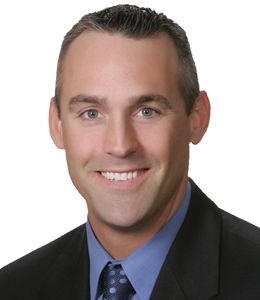
Walpole High School’s principal, Mr. Stephen Imbusch, has been thinking — really actively thinking — about student learning. His goal, as stated in his address to the senior class, has been — and will continue to be — to take an already high-achieving school, in a high-achieving state, and continuously improve it. Starting last year, he has actively encouraged teachers to maximize student achievement by scheduling Professional Learning Communities (PLC) within the teachers’ contracted workweek. Now entering the second year with this allotted PLC time, the faculty of Walpole High School attended a presentation in the high school during late August by a Dr. Mark Weichel, a former principal who also who works for SolutionTree (The group that coined the term PLC). While Dr. Weichel in no way mandated any new education policies, Mr. Imbusch intended Weichel’s presentation to spark discussion within the faculty about improving student achievement. And spark it has.
The focus of the PLC’s last year were for departments to establish common academic expectations. However, with all of the changes that took place at the school last year during Mr. Imbusch’s first year, many teachers struggled with agreeing on common academic expectations. History teacher Jeff Szymanski gave the system a letter grade of a “D” for his department, because he said, “History teachers, with a preset, MCAS-centered curriculum, are easily able to communicate and decide, and didn’t need a whole year to evaluate the process.”
Chemistry teacher Dan Mullaney gave the implementation of the program last year a “hard C-minus” because he said, it “made things pretty hectic.” Both noted, however, that they are wholly optimistic about the system. Mr. Szymanski said, “Communication is key — we’ve got to share information in order help each other grow.” Mullaney added that, “This year has been better than last year, and I think it will improve even more.”
Fast-forwarding to this year, Dr. Weichel spoke to the faculty about numerous grading policies, specifically focusing on creating common formative assessments (which is the faculty focus of PLCs this year). Formative assessments measure learning of students across classrooms. Hence, if two teachers teach the same material to two separate classes, they would compare their results of the same formative assessments in order to measure how well their separate classes learned the material. So if one teacher’s students scored poorly, that teacher could reteach them.
In addition to the presentation of Formative Assessments, Dr. Weichel also discussed some other grading policies that he found successful at his school. These grading suggestions were all uniform rules that all teachers in his district were forced to implement. For instance, he endorsed a “No Zero” policy which meant that teachers could not give a student a zero on an assignment; rather, the teacher must force students to complete all assignments, even if they are late.
While this policy felt too extreme by some, many considered a more lenient “Zeroes of Last Resort” policy as more practical. One junior student, who was anonymously interviewed about the policies, said, “Most teachers I’ve had only give zeroes at the end of the term and I think that’s about right.” Mr. Mullaney expressed the same sentiment: “I don’t believe in ‘no zeroes period’, but sometimes things are beyond a teacher’s control. I give students every opportunity to make up assignments, but the term has got to end sometime.”
Additionally, Dr. Weichel also suggested a uniform 70-to-30 ratio of tests-to-homework/classwork where all teachers would weigh their tests as 70 percent of the students grade. He endorsed this policy because he wanted their grades to be indicative of their learning, not their negative behavior (not completing homework, etc.).
Due to the uniformity, many teachers who appreciate the freedom of their classroom policies felt apprehensive. “Standardization isn’t a bad idea,” said Mr. Szymanski, “but I think it’s better to let teachers be individuals.” In contrast, the anonymous junior student said, “A standard policy will help kids adapt to different teachers as they go through high school.”
Although Dr. Weichel’s presentation did not bring any immediate changes, his presentation foreshadows potential, future changes to grading policies.
Meanwhile, in response to Mr. Imbusch’s continual focus on the improvement of student learning, Mr. Szymanski said, “He’s been thinking, and I like it.” Szymanski’s sentiment was reflected in all teachers and students interviewed: regardless of their opinions on the potential academic policies, everyone agreed that new ideas are welcome in Walpole and will ultimately help. “We really need more new ideas around here,” the aforementioned anonymous junior summarized, “and I’m glad we’ve got people to bring them.” Mr. Szymanski agreed: “I don’t agree with every new policy but I really like that Mr. Imbusch isn’t happy with complacency. He’s trying to modernize us.” Maybe Walpole, Massachusetts will be able to actively change the way American students learn. Only time — and experimentation — will tell.








